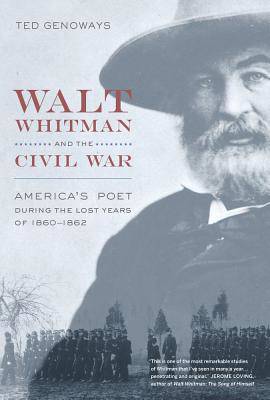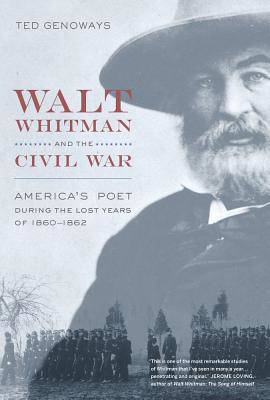
- Afhalen na 1 uur in een winkel met voorraad
- Gratis thuislevering in België vanaf € 30
- Ruim aanbod met 7 miljoen producten
- Afhalen na 1 uur in een winkel met voorraad
- Gratis thuislevering in België vanaf € 30
- Ruim aanbod met 7 miljoen producten
Zoeken
Walt Whitman and the Civil War
America's Poet During the Lost Years of 1860-1862
Ted Genoways
Hardcover | Engels
€ 76,45
+ 152 punten
Omschrijving
Shortly after the third edition of Leaves of Grass was published, in 1860, Walt Whitman seemed to drop off the literary map, not to emerge again until his brother George was wounded at Fredericksburg two and a half years later. Past critics have tended to read this silence as evidence of Whitman's indifference to the Civil War during its critical early months. In this penetrating, original, and beautifully written book, Ted Genoways reconstructs those forgotten years--locating Whitman directly through unpublished letters and never-before-seen manuscripts, as well as mapping his associations through rare period newspapers and magazines in which he published. Genoways's account fills a major gap in Whitman's biography and debunks the myth that Whitman was unaffected by the country's march to war. Instead, Walt Whitman and the Civil War reveals the poet's active participation in the early Civil War period and elucidates his shock at the horrors of war months before his legendary journey to Fredericksburg, correcting in part the poet's famous assertion that the "real war will never get in the books."
Specificaties
Betrokkenen
- Auteur(s):
- Uitgeverij:
Inhoud
- Aantal bladzijden:
- 222
- Taal:
- Engels
Eigenschappen
- Productcode (EAN):
- 9780520259065
- Verschijningsdatum:
- 15/09/2009
- Uitvoering:
- Hardcover
- Formaat:
- Genaaid
- Afmetingen:
- 161 mm x 232 mm
- Gewicht:
- 526 g

Alleen bij Standaard Boekhandel
+ 152 punten op je klantenkaart van Standaard Boekhandel
Beoordelingen
We publiceren alleen reviews die voldoen aan de voorwaarden voor reviews. Bekijk onze voorwaarden voor reviews.







